Workshops
2nd Workshop on Eudaimonia in Digital Games
The concept of eudaimonia in the study of video games has been the subject of increasing interest in recent years, especially as juxtaposed to the idea of hedonia which is often assumed as lying at the heart of most video game play experiences. However, there is a lack of consensus on what eudaimonia exactly is, how it manifests in the player experience, and what effect it could have on the emotional experience of game play.
Building on a successful 1st year at last year's FDG'23, this workshop seeks to bring together researchers from across a broad range of games research fields, such as those represented at FDG. We will discuss this emerging and important concept and potentially create a cross-disciplinary research agenda for delving deeper into how this foundational concept of wellbeing can be applied within the field of digital games.
Workshop on Game Research Software System Reuse
grssrworkshop.comThe Workshop on Game Research Software System Reuse aims to help better encourage reuse of existing game research software systems (broadly defined) developed in the game research community. The goal of the workshop is to disseminate knowledge about such systems, explore the space of what is possible with existing systems, and foster new collaborations centered around existing systems. The workshop is accepting two types of submissions: case studies about the reuse of existing game research software systems, and tutorials on existing game research software systems.
On the Role of Computer Vision in Games
Presented by Farrukh Rahman, Senior Applied Scientist at Studios Quality-Xbox Game Studios.
Machine learning approaches have significantly advanced computer vision (eg. scene understanding, reconstruction, synthetic data) and the recent inclusion of multimodal methods, namely text has enabled a natural interface to interact with such models. In this tutorial, we’ll survey various approaches focusing on contextualizing research problems in computer vision with applications during game development. We aim to offer insight on the pivotal role computer vision will have in shaping future gaming experiences.
Tutorial on Playable Citations
gisst.dev/pages/workshopsThis tutorial will kickstart scholarship and pedagogical applications for interactive, playable citations. Participants will use the latest prototypes of the Game and Interactive Scholarship Support Toolkit (GISST) (funded by the National Endowment for the Humanities) and the Playable Quotes project to develop and perform new types of scholarship. GISST is a database of game metadata and a web-based workbench for building up citations in the form of snapshots of system state and replays of input sequences. GISST is built on the RetroArch project, so it supports several dozen game consoles for interactive, in-browser play, and dozens more in a companion desktop app. Besides RetroArch emulator cores, it also supports the v86 emulator for a number of 32-bit x86 operating systems ranging from DOS through Windows XP. The workshop will familiarize participants with the tools and scholarly workflow during the morning; in the afternoon, participants will conduct novel scholarship with GISST, possibly exporting citations in the form of self-contained playable quotes suitable for public release. We will conclude by sharing out ideas and conducting a final wrap-up session to set directions in game citation for the coming months and establish a shared discussion group.
Workshop on Playful, Social, and Counter-Productive AI
Join us for a half-day workshop on playful, social, and counter-productive AI at FDG '24! The main goal of the workshop will be to discuss and create speculative designs of AI systems that subvert the current trend toward those that are productivity-focused. Submissions and discussions during the workshop will cover the following non-exhaustive list of themes: silly, absurdist or provocative AI systems or applications, counter-productive or anti-capitalist AI, critiques of current AI trends, reflections over the use of AI in the workplace, playful AI, or human-AI playful interactions.
Workshop on Procedural Content Generation
pcgworkshop.comProcedural Content Generation (PCG) attracts significant interest from both academia and the games industry where it has been researched and used extensively. PCG has the potential of substantially reducing the authorial burden in game creation, improving the theoretical understanding of game design and realizing its automation, and enabling entirely new forms of games and playable experiences.
This workshop aims to advance knowledge in PCG by bringing together researchers and developers, and facilitating discussion on practices, opportunities, and challenges within the field. Likewise, one of the aims is to help bridge the gap between academia and industry by giving space to both to present, discuss, and engage in fruitful dialogue. To support these goals, this year we provide multiple submission possibilities: full length paper submissions (5-8 pages), short length paper submissions (2-4 pages), short position papers, and demonstrations of ongoing projects. Besides these submissions, this year we also support and encourage participants to submit early research ideas and work-in-progress in the form of extended abstracts to be presented and discussed as lightning pitches to get feedback and foster collaboration.
Queer Play Workshop
sites.gatech.edu/queerplayJoin us for a full-day workshop of paper presentations, panels, and open discussion around Queer Play! In keeping with the fluidity of the concept of “queer”, “Queer Play” is a term we keep intentionally open to allow for a range of interpretations and contributions to the workshop. We aim to move beyond focusing on LGBTQ characters and representations inside games, and to actively explore and discuss queer forms, queer playing, and queer approaches to gameplay design.









